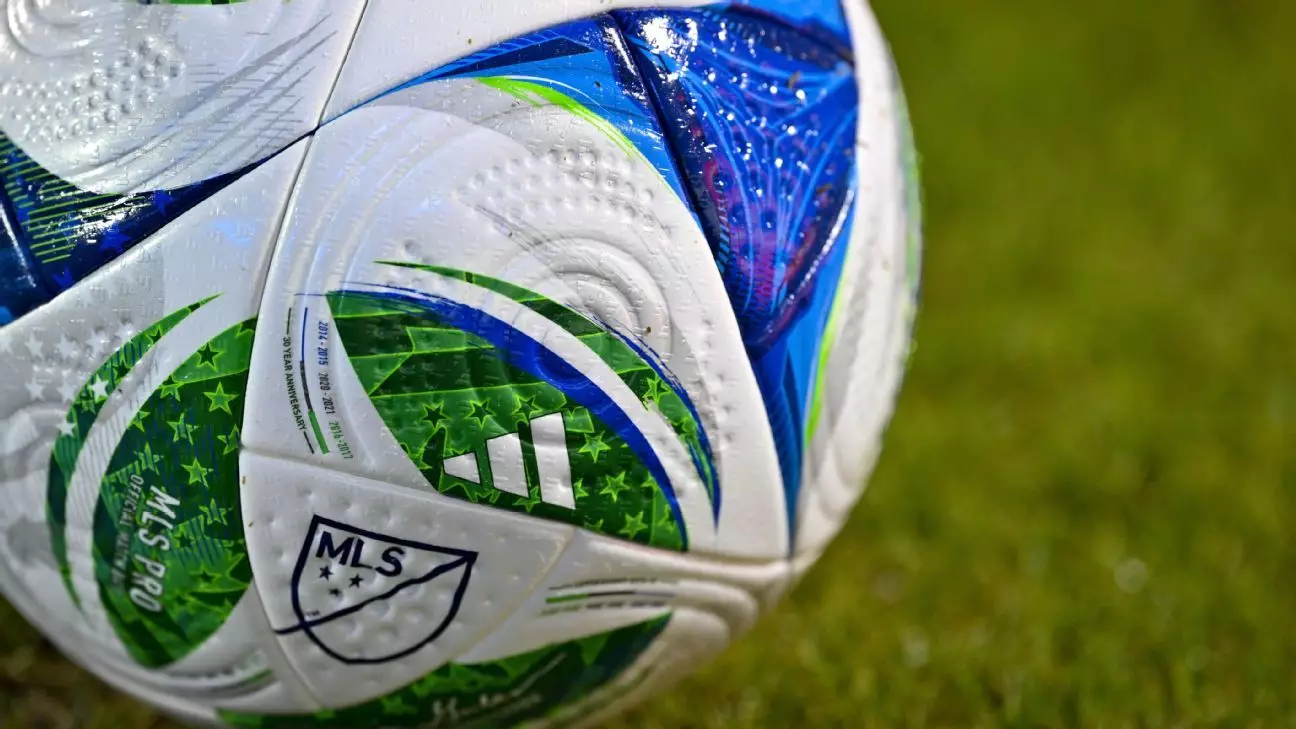Amid the backdrop of rising expectations within Major League Soccer (MLS), a contentious battle over player compensation is brewing. Central to this dispute is the prize money allocated for the FIFA Club World Cup, an event that promises significant financial rewards. Players, particularly those from the Seattle Sounders FC, have effectively brought this conversation to the forefront by organizing a protest. Their bold move, emblazoned with slogans that resonate with concerns for equity, signals a shift in how players are asserting their worth and demanding accountability from the league.
The Messi effect and influx of talent into MLS have generated unprecedented financial momentum. In light of this, the disparity between what the league earns versus what players take home can seem stark. This is not merely about numbers; it’s a reflection of respect, value, and recognition within the sports hierarchy. The Sounders’ protest at Lumen Field is emblematic of a larger struggle that transcends individual teams; it underscores the necessity for players across the league to unite in pursuit of a fairer distribution of economic rewards.
The Players’ Stand
The stance taken by the Major League Soccer Players Association (MLSPA) following these protests was unequivocal. They termed the league’s initial proposal “retaliatory,” signaling a firm stance against what they perceive as an unwillingness of MLS to engage in constructive negotiation. The claim that MLS is disregarding the players’ contributions exemplifies the often overlooked narrative of the athlete’s value in league negotiations.
The stark difference between the initial CBA terms and the revised proposal highlights a widening gap. Under the original collective bargaining agreement, players were slated to receive a paltry 50% of proceeds from external tournaments, capped at a million dollars. The new proposal suggests a mere 20% for performance-based earnings – an offer that many players are justifiably finding inadequate. The MLSPA’s insistence on a higher percentage is a testament to the shifting landscape of sports negotiations, where players are increasingly unwilling to accept less than their fair share – a trend that could have far-reaching implications across sports.
Behind the Numbers
Let’s take a closer look at the financial dynamics at play. The rewards from the FIFA payout total $28,650,000, yet players’ share remains a meager 10%. This does not only reflect an unfair distribution; it raises questions about the economic transparency and ethical considerations within MLS. It is not just an issue of arithmetic; it is about creating a culture where players feel valued and compensated fairly for their contributions to the league’s success and growth.
Drawing comparisons with counterparts in other leagues worldwide, the MLSPA’s claims about “back-end compensation” being a mere 20% do not meet international standards. The reality is that if league officials genuinely want to elevate the status of MLS on the global stage, they must begin treating players as equal stakeholders in the organization’s financial ecosystem. Equity for players is not merely a business consideration; it is critical for the integrity and future of the sport within North America.
A Call for Solidarity and Unity
As the Club World Cup looms, the pressure on both the league and the players intensifies. The timing of negotiations and proposals raises the stakes further for all involved. Players should ideally be preparing for international competition, not mired in a fight for fair compensation. The courage demonstrated by the Seattle Sounders players – and the collective resolve of the MLSPA – is a beacon of hope in this struggle. It symbolizes a new era in which player activism is reshaping the conversation around compensation and equity in sports.
Oppression in any form, whether monetary or otherwise, must be met with resistance. The players have invoked their rights, not merely for a fraction of the financial gains, but for recognition of their labor and contributions. Their commitment to unity and using their collective platform to demand their rightful share is inspiring and necessary. In an age where athletes are increasingly seen as brand ambassadors and influencers, it’s pivotal that their voices resonate with power within the league’s boardrooms, ultimately paving the way for a brighter, more equitable future for all athletes in the MLS.

